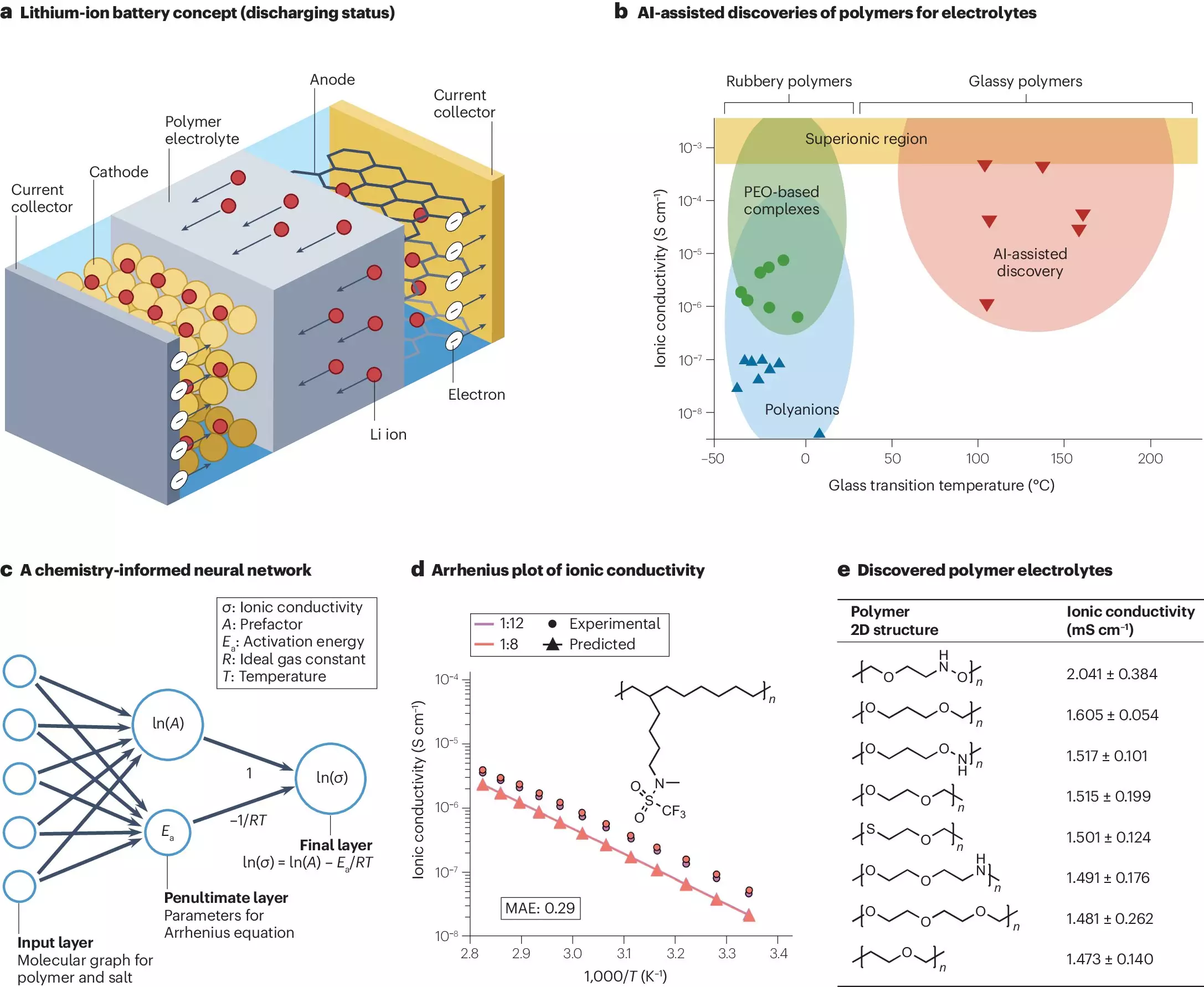Polymers such as Nylon, Teflon, and Kevlar have become ubiquitous in our daily lives, playing crucial roles in a diverse range of applications from consumer products to industrial technologies. These large-molecule compounds are essential for improving efficiency and functionality in various systems, making the ongoing quest for innovative polymer development not just important but vital. Traditionally driven by experimental processes, the field of polymer science is undergoing a significant transformation as researchers integrate artificial intelligence (AI) into their methodologies. This revolutionary approach not only enhances the pace of discovery but also broadens the horizons for what is possible in polymer development.
Recent advancements in polymer science can be credited to the pioneering work led by Rampi Ramprasad at Georgia Tech, where the intersection of AI and materials science is being explored. Ramprasad’s team has effectively established AI algorithms that assist in the materials discovery process, aiming to bring forth new polymers that can meet the demands of contemporary challenges such as energy storage, environmental sustainability, and advanced manufacturing. The incorporation of AI allows for the rapid analysis of extensive datasets, turning traditional experimental trial-and-error into a targeted and systematic approach.
In the summer of 2023, two groundbreaking papers published in prestigious journals unveiled the tangible benefits stemming from years of AI-driven research. The first paper appeared in Nature Reviews Materials, celebrating the advancements made in polymer design for applications that are both critical and relevant today, notably in energy storage and filtration technologies. A second publication in Nature Communications elaborated on specific AI-driven discoveries focusing on polymers tailored for electrostatic energy storage solutions.
Professor Ramprasad emphasizes that the landscape of materials science is changing due to AI’s capability to facilitate accelerated polymer discovery. He notes that, initially fueled by curiosity, research in this area is now witnessing achievements that are reshaping industrial practices. The algorithms developed by his team can predict polymer properties and formulations before they are actually synthesized, thus averting potential missteps and waste of resources. The process commences by defining specific criteria—what properties the final polymer should display. This is coupled with machine learning (ML) models trained on historical data, which serve as the backbone for forecasting desired outcomes.
The ultimate goal is to identify top candidates that satisfy the performance metrics and validate these through rigorous laboratory experimentation. Each success feeds back into the models, creating a feedback loop that continuously refines predictions. Nonetheless, the adoption of AI is not without its challenges. The efficacy of AI predictions is heavily reliant on comprehensive and high-quality datasets. Moreover, creating algorithms capable of producing chemically viable polymers presents a significant hurdle.
The dynamic between Ramprasad’s group and collaborators from various institutions, including the University of Connecticut, has been instrumental in advancing this research. For example, the collaboration has led to the development of new polymer variants for capacitor applications in electrical and hybrid vehicles. These innovative materials promise to strike a balance between energy density and thermal stability, traits that are often at odds. The successful synthesis and testing of these new polymers underscore the practical implications of utilizing AI in materials science.
It is evident that such collaborative ventures harness the strengths and expertise of distinct research teams, enabling them to drive cutting-edge discoveries that individual entities may struggle to achieve alone.
The implications of AI in polymer science extend beyond academic discoveries into the realm of industrial applications. Co-authors from entities like the Toyota Research Institute and General Electric have contributed to research aimed explicitly at enhancing industrial practices. The push for AI-driven materials development in corporations signifies a collective recognition of AI’s potential to revolutionize how materials are approached in the market.
Spun out of Georgia Tech, the startup Matmerize Inc. seeks to bridge the gap between academia and industry by offering cloud-based software that streamlines the polymer design process. According to Ramprasad, Matmerize enhances research by enabling companies to innovate efficiently, thereby reducing time and costs associated with bringing new materials to market. This initiative exemplifies direct benefits for industries seeking to leverage AI to stay competitive.
The integration of AI into polymer science signifies a transformative period where research and industry are converging towards a future that promises unprecedented innovations in material development. By embracing the potential of AI, researchers like Ramprasad are not only redefining polymer discovery but are also paving the way for real-world applications that could revolutionize multiple sectors. As the landscape continues to evolve, the combination of collaborative efforts, robust technological tools, and forward-thinking mindsets is set to unlock new opportunities and challenges, ultimately enhancing lives through advanced materials.

